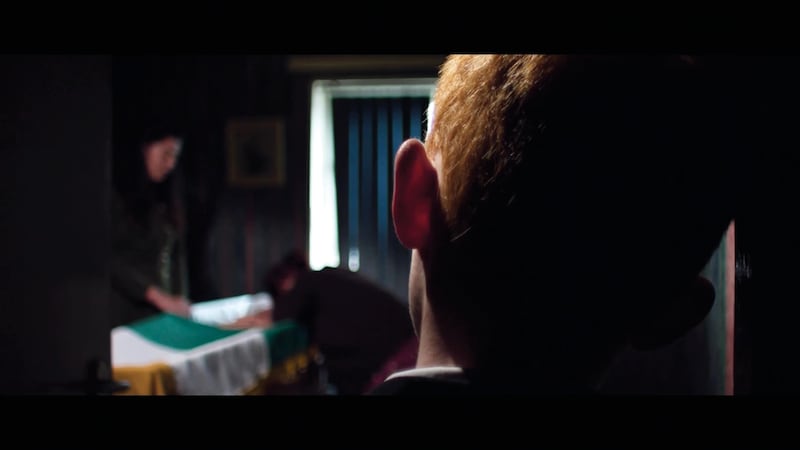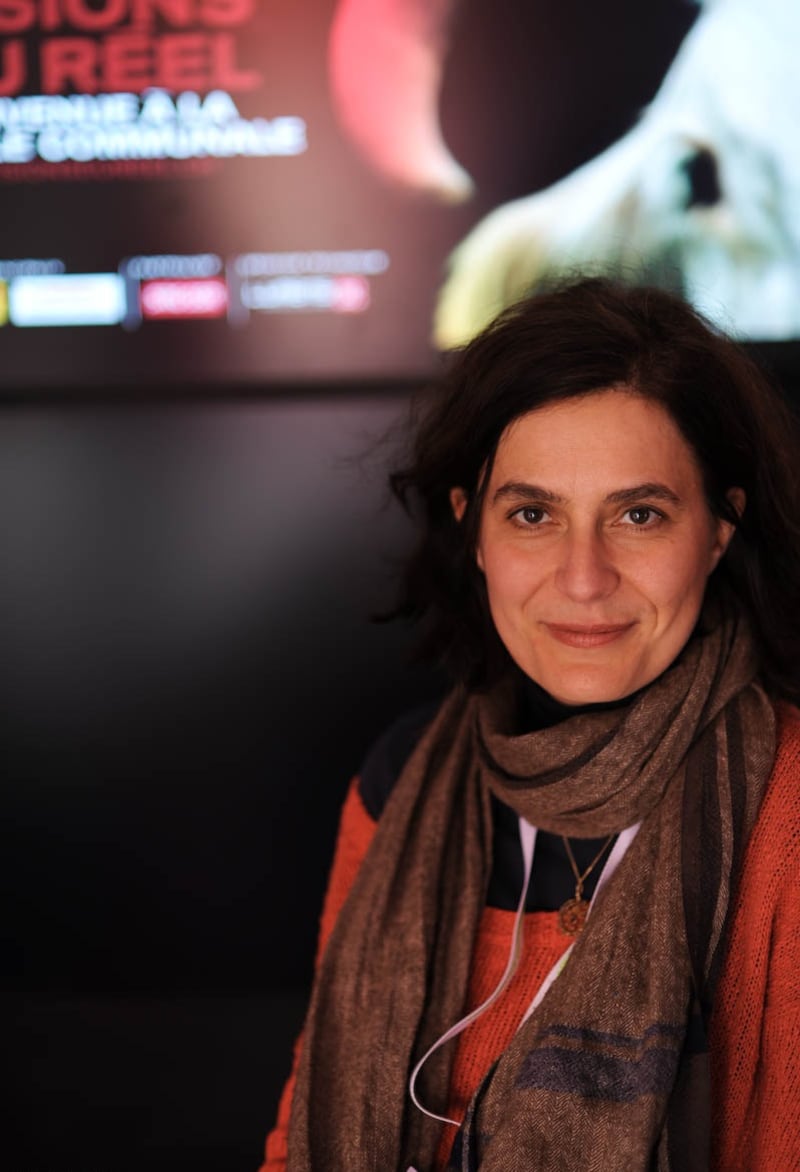ALESSANDRA Celesia’s powerful new documentary The Flats finds the Italian-born, Paris and Belfast-based film-maker becoming a fly-on-the-wall in the homes of several New Lodge residents, documenting their lives over a five-year period.
We meet Joe McNally and his dog, Freedom, on their morning walk through the grounds of the tower blocks-based north Belfast housing development, described in introductory onscreen text as “a republican enclave among the most heavily impacted areas of the Troubles”.
Joe knows this only too well: in 1975, when he was nine, his favourite uncle was murdered by the Shankill Butchers. Shortly thereafter, he found a escape from his confusion and grief in the thrill of rioting against the British Army and RUC.

“I threw my first petrol bomb when I was nine-and-a-half,” he tells Rita Overend, a therapist working for the PIPS Suicide Prevention charity within the community, of how he helped torch a hijacked lorry as a child.
“I felt like I was a man after that. Five years later, I was in the heart of making, organising and throwing them.”
Having struggled with criminality, drinking and drugs, the Joe we meet in The Flats is now vehemently anti-drugs. We see him videoing local dealers on his phone and being cautioned against his plan to emulate his hero, Bobby Sands, by staging a hunger strike until something is done about them.
Although not a father himself, Joe speaks of his fears for the youngsters on the estate: kids like Sean Parker, who portrays the dumbfounded young Joe during a staged recreation of his uncle’s wake, a scene also featuring Joe’s neighbours, Jolene Burns and Angie B Campbell – friends bonded by their shared experiences of domestic violence, whose lives Celesia also documents in the film – portraying his grieving mother and granny, and an actor in a coffin as the deceased.

It’s one of quite a few memorable staged scenes in The Flats, where the director, whose husband’s family has north Belfast roots, was able to call upon her background in theatre in order to visually recreate key moments from her subjects’ lives.
“It was my idea, in the sense that I knew there were so many stories that were in the past – so how will we see them?” explains Celesia, who premiered The Flats at the CPH:DOX festival in Denmark last week.
“I found a chipped coffin that nobody wanted for £150, and I just brought it in my car to Joe’s flat. I said, ‘do you want to try to recreate [the wake]?’. So we tried and it worked for him – he took over and became the director.
“I think, coming from theatre, I was sort of able to help them, and direct them without really directing them – it was just really trying to give them a path. Very quickly, my idea became their idea, and we all enjoyed the process very much.
“They are natural-born actors – I could not have done it if they weren’t so amazing.”
The paternal nature of the relationship that develops between Joe and Sean – a man trapped in the past, whose childhood was stolen by the Troubles, and a boy born into peace with a bright future ahead of him – is quite touching to behold.
“I had a picture of Joe when he was nine-years-old and I was saying to one of the neighbours, ‘I’m looking for a boy like that’,” reveals the director of how Sean got involved in the film.
“They said, ‘hold on’: five minutes later Sean arrived – and he was the spitting image of the young Joe.
“He is a very good boy, he’s very clever and he does well in school and at football, and he has a very good family behind him. But he’s also from New Lodge: he wasn’t afraid of the horrific stories we were telling, because he grew up with them.”

When watching The Flats, it quickly becomes apparent that Joe, Jolene and Angie (who sadly passed away earlier this month) must have trusted the director completely, granting her intimate access to their lives and allowing the camera to capture them at their most vulnerable.
According to Celesia, whose previous documentaries include 2017′s Anatomia del miracolo and The Belfast Bookseller (2011, also featuring Jolene Burns), it didn’t take long for the residents to embrace being given a chance to tell their stories – both directly and through a bit of acting.

“I think it was painful, but also extremely joyful,” she says of the film-making process.
“I think they realised very quickly they were they were being given an instrument to bring alive the history of their area that has been so neglected for so long. There’s not really an intimate film set in New Lodge, there’s nothing that tells all those stories.
“But then, this ‘mad Italian woman’, as they called me, arrived with a vehicle to give them a voice.”

The director reveals she was reluctant to make a film dealing with the Troubles for many years.
“I married a guy from Belfast in 1997,” explains Celesia.
“This was just before the Good Friday Agreement, so I was really sure I would never make a film about the Troubles. I just thought, ‘that’s the past, we’re moving towards something different’, which, thank God, we did. And so I never touched this subject for years.
“But I was very attracted by the landscape of the flats, these seven towers that are so peculiar in Belfast which is more ‘little houses’. So I just thought, ‘I’m gonna go and have a look’.

“Then I discovered that it was the place where my husband John’s family was originally from, on his dad’s side. And after that, I discovered the whole story of how much the Troubles impacted the area.
“I just realised that we were in a moment in history where the last men of that generation, like Joe, were disappearing. And so I just thought, maybe it’s the time to make a film.”
She adds: “My aim was not to make a ‘political’ film, you know, but just to see the consequences of trauma.
“I thought, if we could get to the bottom of that, maybe it could represent the long term consequences of many other wars as well.”








